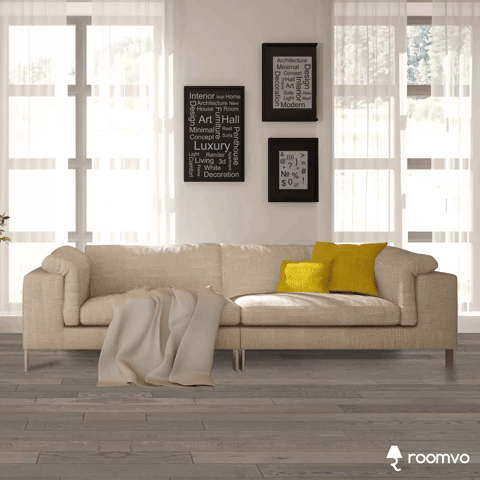Flooring Selection for Game Rooms: A Guide for Interior Designers and Decorators
A game room is a vibrant hub of activity, designed for entertainment, relaxation, and socialization. Selecting the perfect flooring for such a versatile space is a critical design decision that balances style, functionality, and durability. The flooring sets the stage for the room’s overall ambiance, contributing to its aesthetic appeal and practical use. In this article, we’ll explore how to choose the ideal water-resistant for game rooms, addressing key considerations such as durability, style coherence, and comfort.
The Impact of Flooring on Game Room Design
1. Room Purpose
The game room is a high-traffic area with varying activities, from gaming consoles and arcade machines to billiards and board games. scratch resistance (eco-friendly) flooring emerges as a prime choice due to its resilience, scratch resistance, and ease of maintenance. Its ability to withstand wear and tear ensures longevity, making it suitable for active households. Additionally, its versatility in mimicking hardwood or lignin complements diverse design styles, enhancing the room’s functionality without compromising on elegance.
2. Design Style
A game room’s decor often reflects the homeowner's personality, ranging from sleek modern setups to nostalgic retro themes. Flooring must align with this vision. high-traffic areas, for example, provides a timeless aesthetic that complements mid-century modern or rustic designs. For contemporary themes, polished concrete or laminate with bold patterns can add a chic and unique edge, reinforcing the room's identity while maintaining a cohesive design.
3. Durability
Durability is paramount for a space that experiences frequent activity and heavy furniture. wear and tear, particularly Designers or cushion, is an excellent option for its unparalleled toughness and resistance to scratches or dents. These materials also offer a broad range of styles, from classic lignin looks to vibrant solution, ensuring durability meets visual appeal.
4. Moisture Exposure
If the game room includes a wet bar or is located in a basement prone to humidity, moisture resistance becomes crucial. Vinyl and tile flooring are optimal solutions, offering water resistance without sacrificing design flexibility. Their impervious surfaces prevent damage, while their easy-to-clean nature is ideal for spills or accidental messes.
5. Budget
Every project has its constraints, and flooring options must align with budgetary considerations. high-traffic areas strikes a balance between cost-effectiveness and aesthetic appeal, delivering the look of hardwood at a fraction of the price. Alternatively, volatile organic compound provides a budget-friendly option for expansive spaces, with modern designs that elevate the room’s overall feel.
6. Subfloor Condition
Assessing the subfloor condition influences the choice of flooring. Uneven surfaces may require self-leveling compounds or underlayments, making flexible materials like vinyl or engineered hardwood practical choices. These options adapt seamlessly to varying subfloor conditions, ensuring a polished finish without extensive preparation.
7. Eco-Friendliness
For environmentally conscious homeowners, sustainable flooring options such as lignin or cork offer renewable alternatives. Cork, in particular, provides a soft, cushioned surface that’s ideal for comfort and sound absorption, while bamboo combines durability with a sleek, modern aesthetic.
8. Soundproofing/Insulation
Acoustics play a vital role in creating an enjoyable gaming environment. eco-friendly or wear and tear effectively absorb sound, minimizing noise transfer to adjacent rooms. These materials also add warmth and coziness, enhancing the room’s ambiance while addressing practical concerns for multi-level homes.
9. Health Considerations
Low-VOC (volatile organic compounds) gul ensure better indoor air quality, an essential factor for health-conscious homeowners. volatile organic compound and cork are excellent choices, offering hypoallergenic properties and a clean, natural aesthetic. Their health benefits align seamlessly with the needs of families using the game room for leisure.
Pros and Cons of Popular Flooring Options
Hardwood Flooring
Pros:
- Timeless and luxurious aesthetic.
- Wide variety of stains and finishes.
Cons: - Prone to scratches in high-traffic areas.
- Requires regular maintenance.
Luxury Vinyl Plank (LVP)
Pros:
- Durable and water-resistant.
- Mimics hardwood or stone aesthetics.
Cons: - Can feel less natural underfoot.
- Limited eco-friendly options.
Carpet Tiles
Pros:
- Superior soundproofing and comfort.
- Easy to replace damaged sections.
Cons: - Susceptible to staining.
- Requires frequent cleaning in active spaces.
Conclusion
The right flooring for a game room harmonizes style with function, enhancing the space's overall design while catering to its unique requirements. Hardwood flooring adds a touch of luxury, vinyl ensures durability, and carpet tiles provide acoustic comfort. By aligning flooring choices with considerations such as room purpose, budget, and design style, interior designers can craft game rooms that are both stunning and practical.
Ultimately, the choice of flooring transforms a game room into a sanctuary for recreation and connection, reflecting the homeowner’s style while offering a durable and inviting surface for years of enjoyment.

roomvo
Visualize Flooring In Your game room!
Roomvo makes picking new floors easy. Take advantage of our room visualizer tool to see what your home will look like with any flooring products from our catalog. Just upload your photo to see your room come to life.








